Ralph Yarl shooting: When ringing the wrong doorbell turns violent
An unarmed 16-year-old Black teenager knocked on the wrong door and nearly lost his life


A free daily email with the biggest news stories of the day – and the best features from TheWeek.com
You are now subscribed
Your newsletter sign-up was successful
On April 13, Ralph Yarl, an unarmed Black 16 year old, was shot twice in Kansas City, Missouri, after he walked up to the wrong house. The high school junior had been asked to pick up his younger siblings from a friend's house, but mistakenly went to a home a block away. The homeowner who shot him, an elderly white man, was not immediately arrested or charged, sparking outrage and protests in Kansas City.
What led up to the shooting?
Yarl's family said he was told to pick up his siblings from a friend's house on 115th Terrace, but he left his phone behind, and without the right address, accidentally went to 115th Street. It was around 10 p.m., and Yarl's family said after he knocked on the door, the homeowner opened the door and shot him twice — once in the head and once in the arm. "He mistakenly went to the wrong house," Yarl's aunt, Faith Spoonmore, wrote on GoFundMe. "He pulled into the driveway and rang the doorbell. The man in the home opened the door, looked my nephew in the eye, and shot him in the head." Yarl was able to run away from the property, but Spoonmore said he had to knock on three different doors before someone called 911.
The homeowner, identified on April 17 as 84-year-old Andrew Lester, told police officers that not long after he went to bed, he heard his doorbell ring. He looked and saw a Black male pulling on the locked storm door, and afraid he was going to get robbed, fired his Smith & Wesson .32-caliber pistol. The criminal complaint filed April 17 says Lester told police the "last thing he wanted to do" was shoot someone, but he "could not take the chance of the male coming in."
The Week
Escape your echo chamber. Get the facts behind the news, plus analysis from multiple perspectives.

Sign up for The Week's Free Newsletters
From our morning news briefing to a weekly Good News Newsletter, get the best of The Week delivered directly to your inbox.
From our morning news briefing to a weekly Good News Newsletter, get the best of The Week delivered directly to your inbox.
What did police do?
After the shooting, Lester was in police custody for 24 hours, then released. Kansas City Police Chief Stacey Graves told reporters that under state law, a person can be held for just 24 hours before either being formally charged or freed. When an arrest wasn't immediately made, protesters began gathering outside of Lester's home, some holding signs that read "Ringing A Doorbell Is Not A Crime."
Civil rights attorneys Ben Crump and Lee Merritt are representing Yarl, and in an interview with CNN, Crump said, "We can only imagine if the roles were reversed, and you have a Black man shooting a 16-year-old white child who was simply ringing his doorbell, and the police took him in for questioning and let him come home and sleep in his bed at night. How much outrage would there be in America? It's unacceptable. We demand justice. Arrest the attempted murderer of this young Black child."
On April 17, Lester was charged with felony assault and armed criminal action; he pleaded not guilty and is out on a $200,000 bond. During a press conference, Prosecuting Attorney Zachary Thompson said there was "a racial component to the case," and officials "understand how frustrating this has been but I can assure you the criminal justice system is working and will continue to work."
What's happening with the case?
In May, Lester's attorney filed a protective order, arguing that since the shooting, Lester, who is in ill health, has had to move three times for his safety. A judge ruled that the case be partially closed, with discovery only available to the defense and prosecutors. The Yarl family criticized the move, and said the public should be kept informed. A spokesperson for Thompson told ABC News the office accepted the ruling and would be "as transparent as legally permitted throughout this process." Preliminary hearing dates in Lester's case have been scheduled for Aug. 31 and Sept. 1.
A free daily email with the biggest news stories of the day – and the best features from TheWeek.com
How is Yarl's recovery going?
The teenager was hospitalized with gunshot wounds to the head and chest, a fractured skull, a traumatic brain injury, post-concussive syndrome, and injuries to his arm, Merritt told The Guardian. He underwent surgery to remove the bullets, his father, Paul Yarl, shared with The New York Times, and left the hospital on April 16.
Ralph Yarl enjoys playing the clarinet and video games, and is an honor student and all-state band member, his family said. He made his first public appearance over Memorial Day weekend at the annual Going the Distance for Brain Injury fundraiser race in Kansas City. Spoonmore told the Kansas City Star that her nephew gets migraines and has some balance issues, and is trying to deal with "the wounds you really can't see and really don't know how to heal."
What are Missouri's gun laws?
Under the state's "stand your ground" and "castle doctrine" laws, individuals who believe they are being threatened do not have to withdraw, but can only act in self-defense if there is "a reasonable fear of deadly force or assault," Kansas City attorney Kevin Jamison told The Washington Post. There has to be proof of a threat, and Jamison said a person knocking on a door or ringing a doorbell is not a legitimate reason to use deadly force against someone.
Kansas City Mayor Quinton Lucas agrees. "If 'stand your ground' really lets somebody just shoot somebody that rings a doorbell, that puts the life of every postal worker, every campaigner, every Amazon delivery person at risk in this country," he said.
Updated June 26, 2023: This piece has been updated throughout to reflect recent developments.
Catherine Garcia has worked as a senior writer at The Week since 2014. Her writing and reporting have appeared in Entertainment Weekly, The New York Times, Wirecutter, NBC News and "The Book of Jezebel," among others. She's a graduate of the University of Redlands and the Columbia University Graduate School of Journalism.
-
 How the FCC’s ‘equal time’ rule works
How the FCC’s ‘equal time’ rule worksIn the Spotlight The law is at the heart of the Colbert-CBS conflict
-
 What is the endgame in the DHS shutdown?
What is the endgame in the DHS shutdown?Today’s Big Question Democrats want to rein in ICE’s immigration crackdown
-
 ‘Poor time management isn’t just an inconvenience’
‘Poor time management isn’t just an inconvenience’Instant Opinion Opinion, comment and editorials of the day
-
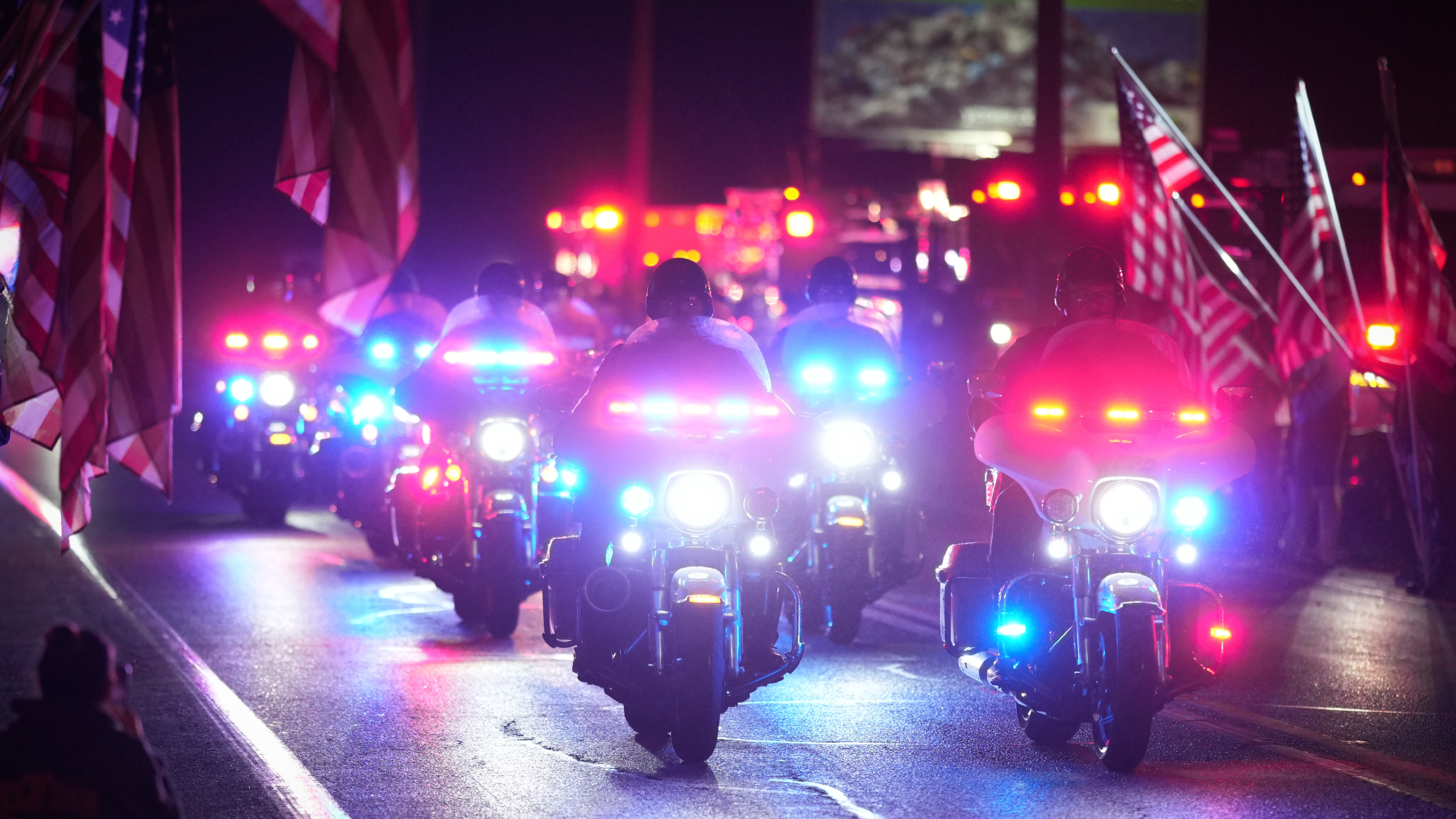 3 officers killed in Pennsylvania shooting
3 officers killed in Pennsylvania shootingSpeed Read Police did not share the identities of the officers or the slain suspect, nor the motive or the focus of the still-active investigation
-
 Trump lambasts crime, but his administration is cutting gun violence prevention
Trump lambasts crime, but his administration is cutting gun violence preventionThe Explainer The DOJ has canceled at least $500 million in public safety grants
-
 Aimee Betro: the Wisconsin woman who came to Birmingham to kill
Aimee Betro: the Wisconsin woman who came to Birmingham to killIn the Spotlight US hitwoman wore a niqab in online lover's revenge plot
-
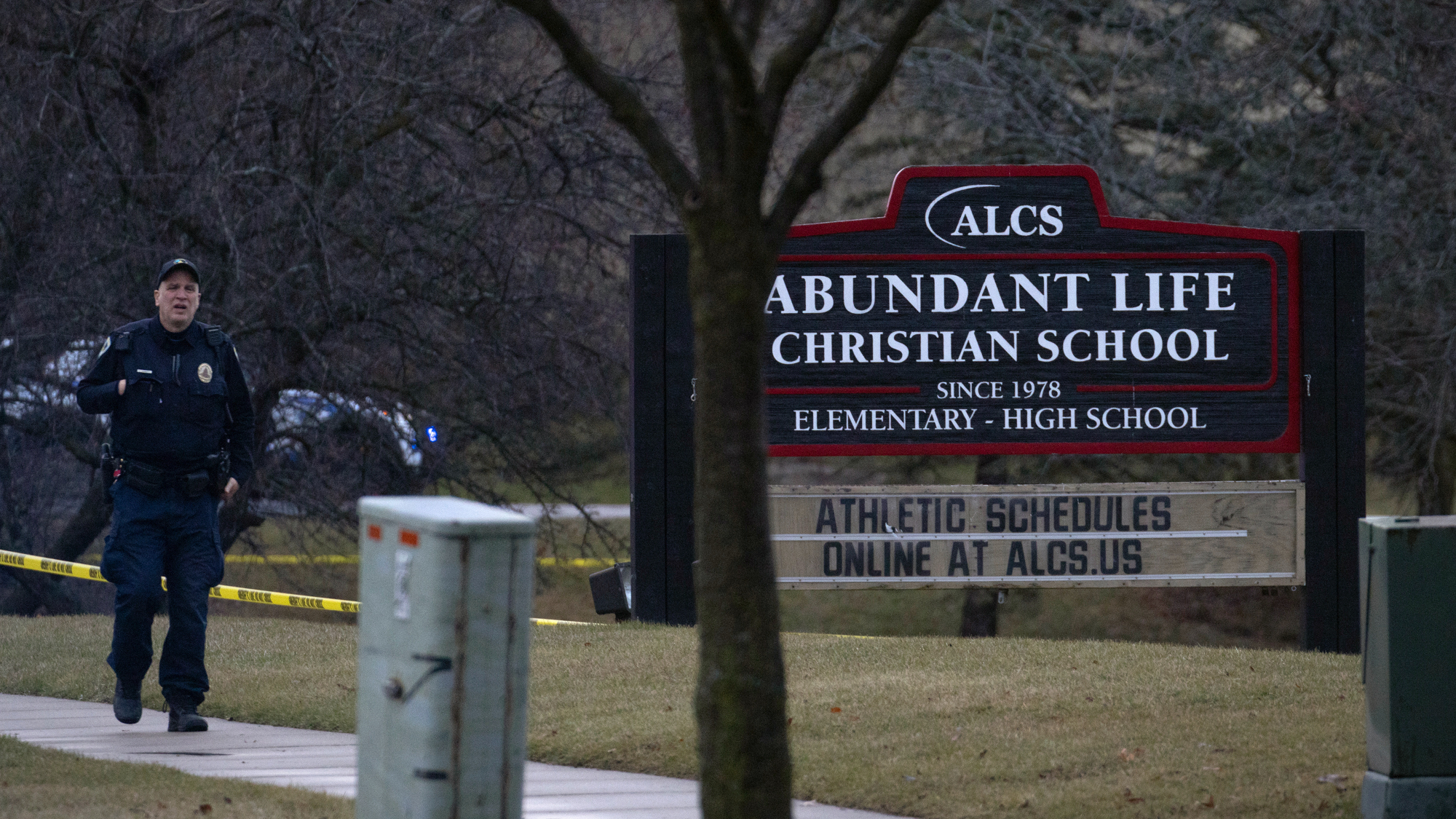 Teenage girl kills 2 in Wisconsin school shooting
Teenage girl kills 2 in Wisconsin school shootingSpeed Read 15-year-old Natalie Rupnow fatally shot a teacher and student at Abundant Life Christian School
-
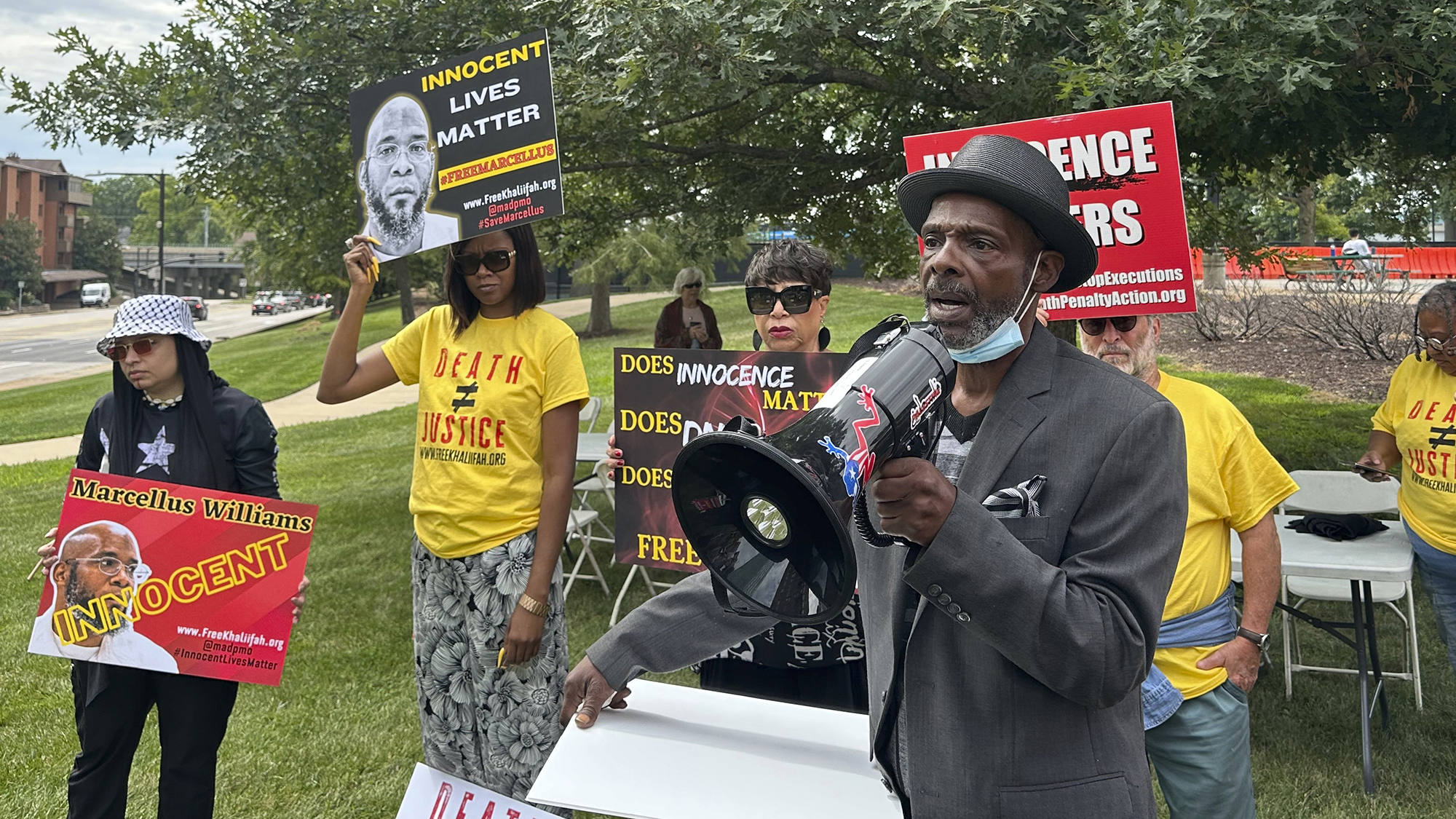 Missouri executes man despite DA's objection
Missouri executes man despite DA's objectionSpeed Read Marcellus Williams maintained his innocence and the killing was opposed by the victim's family
-
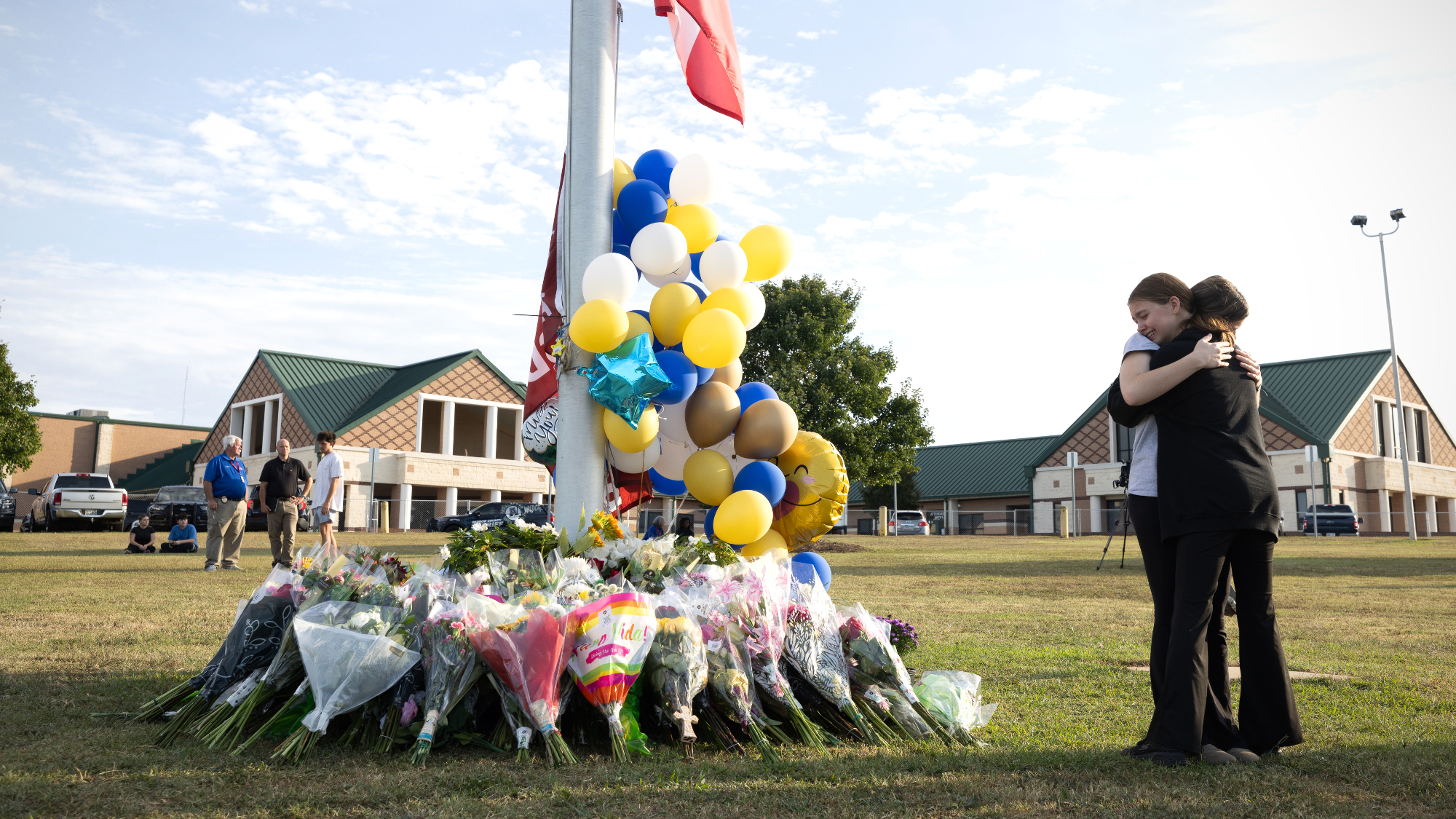 Father of alleged Georgia school shooter arrested
Father of alleged Georgia school shooter arrestedSpeed Read The 14-year-old's father was arrested in connection with the deaths of two teachers and two students
-
 Unlicensed dealers and black market guns
Unlicensed dealers and black market gunsSpeed Read 68,000 illegally trafficked guns were sold in a five year period, said ATF
-
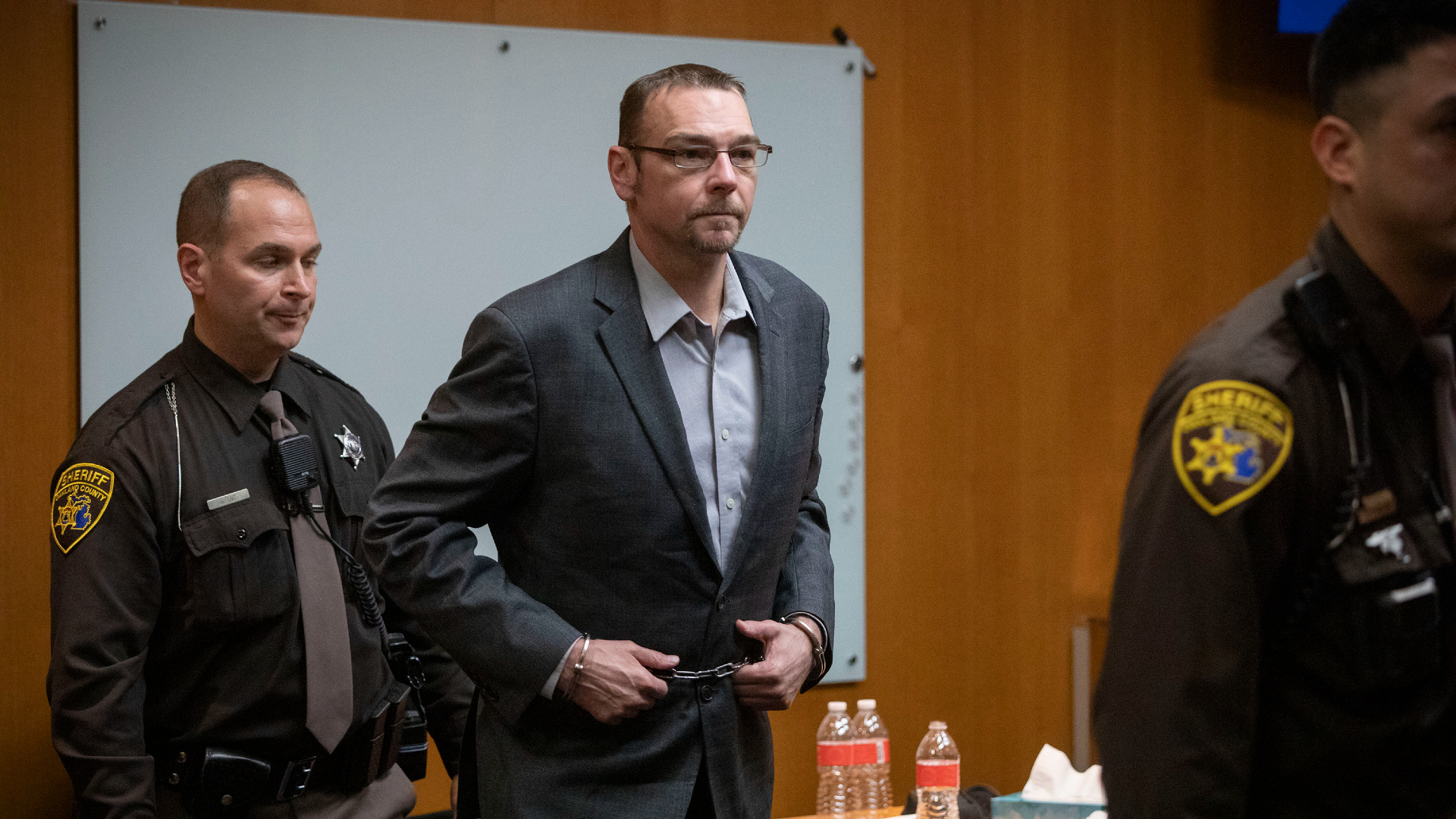 Michigan shooter's dad guilty of manslaughter
Michigan shooter's dad guilty of manslaughterspeed read James Crumbley failed to prevent his son from killing four students at Oxford High School in 2021
